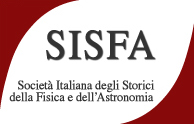Speaker
Description
During the 16th century, the disagreement between the dates of the Julian calendar, which had been in use since 46 BC, and the vernal equinox necessitated a correction to the computational rules used to regulate the flow of time. Luigi Lilio using imprecise astronomical data contained in “The Alfonsine Tables”, was able to elaborate a calendar that has stood the test of time: the Gregorian calendar.
In a famous letter written by Galileo Galilei to the Grand Duchess of Tuscany Cristina of Lorraine, he states that Copernicus had been summoned to Rome from far away Germany in order to participate in the reform. Galileo Galilei, to protect himself from controversy with Church regarding his discovery of the heliocentric system, states that with "…the new doctrine not only has the calendar been regulated, ....”. This sentence, over the centuries, has contributed to generating confusion.
Copernicus did not participate directly in the reform but, as noted in the list of correspondence written by Paul of Middelburg, attached to the conclusive report that he sent to Leone X who wanted to correct the calendar, Copernicus was called to give his opinion. The content of the letter is not known but probably summarizes his knowledge and opinions regarding the effective duration of the tropic year. In this presentation, the supposed influence of Copernicus in the reform of the Gregorian calendar will be discussed.

